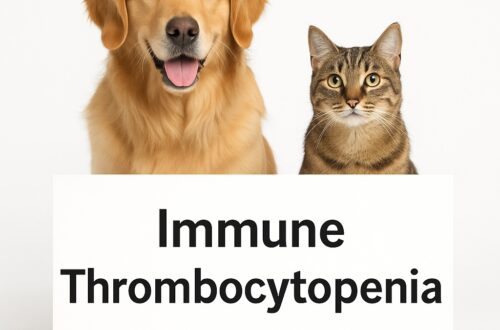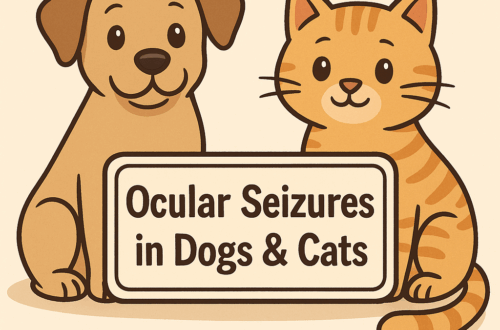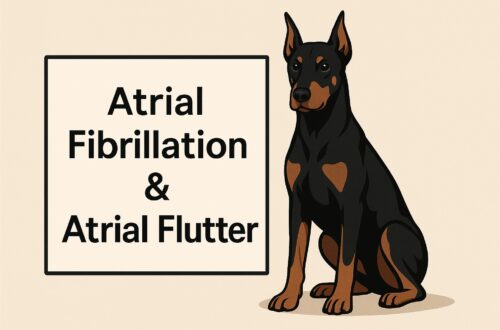One of the best pieces of medical advice I ever received was from a board-certified veterinary surgeon at the hospital where I completed my internship after graduating from Cornell University’s College of Veterinary Medicine. The hospital was/is located in one of the most litigious parts of the country (Long Island, New York), and he was speaking with all of the new doctors about effective client communication techniques and strategies. He made a poignant two-part statement, the first being:
“Clients aren’t paying you for options. They're paying you for your expert medical recommendations for their pet.”
Perhaps this is an obvious statement, but after almost 12 years of clinical practice, these words still ring true to me – loudly and clearly! To illustrate the important difference between recommendations and options, I’m going to use a clinical example, one I have witnessed many times.
Pet Parent A brings her/his beloved middle-aged dog/cat to the family veterinarian for a three-day history of Problem X. The primary care veterinarian asks appropriate questions to obtain an adequate patient history, and performs a complete physical examination. The family veterinarian subsequently develops a very appropriate preliminary diagnostic plan to determine the cause of the pet’s Problem X.I think all pet parents can relate to this scenario if they’ve had to bring their pet to the family veterinarian for a health concern. Here’s where things tend to go one of two ways – Pet Parent A either receives recommendations or is given options for his/her pet. The family veterinarian says something like:
“To help determine the cause of your pet’s Problem X, we can do Test A or we can try treating with Drug B. If Drug B doesn’t work, we can always do Test A at that time.”OR
“To help determine the cause of your pet’s Problem X, I recommend we perform Test A.”Words matter…
Which one of the above statements is a distinct medical recommendation? Surely I hope all of you recognize the latter statement is a true recommendation while the former is much less authoritative. Performing a proper diagnostic investigation requires a financial commitment from a family, but let’s be honest, trying a drug as symptomatic care can be quite cheap. When no clear recommendation is made (as in the 1st statement), the vast majority of pet parents will understandably chose what they perceive is the financially friendliest course of action. No one can blame them – their veterinarian didn’t properly guide them by making expert medical recommendations!
I can’t afford my veterinarian’s recommendation…
My firmly held belief is that all pet parents deserve to know what I, as a veterinarian, recommend for their pet. That is why the family came to see me. That is the information they are seeking. I absolutely understand not all pet parents will always be able to heed a veterinarian’s diagnostic or therapeutic recommendations. That is a fact of life, and it is one that I believe all veterinarians in both primary care and specialty veterinary medical practice understand. But I also know some veterinarians make judgement calls about their clients; the doctor doesn’t think a client can afford a specific test so s/he doesn’t mention it even though the veterinarian believes the test should be performed. This omission is not done maliciously but rather is most commonly done because the veterinarian doesn’t want to make a pet parent feel badly or guilty for not being able to follow recommendations.
Should I ever be given options?
Simply stated, absolutely! This is where the second part of the memorable piece of advice comes into play:
“But if a client can’t follow your recommendations, then you can and should give options. You also have to be good enough not to make them feel guilty.”
If I have effectively communicated my diagnostic and/or therapeutic recommendations but a family can’t follow them for whatever reason, then I must come up with an alternative approach for that pet’s problem; I have to come up with options. It won’t be an ideal tactic – the model methodology was what I recommended – but it is a viable alternative. This is called an empirical or “best guess” approach to a problem. Invariably veterinarians are able to devise different empirical plans.
Remember a veterinarian does want your pet to become healthier, and even though you may not be able to follow a recommendation, the doctor will try to come up with a strategy to help your fur baby.
I ardently believe it is also my job to be an effective communicator so that if a family can’t heed my recommendations, the pet parents don’t feel judged by me or my team. That’s part of my responsibility! If I can’t communicate compassionately enough with a family without making them feel guilty when they can’t heed my recommendations, then I don’t deserve their trust.
Families must understand and accept that empirical options come with no guarantees for success. To use our example from above, if a veterinarian empirically prescribes Drug B because you couldn’t afford Test A to try to diagnose Problem X, you have to accept one very important fact: if your pet doesn’t improve with Drug B, no one will know why because one has not yet identified a definitive diagnosis. You may not be treating the correct disease. You may not be using the most appropriate medication. You. Simply. Don’t. Know.
The take-away message…
Veterinary visits for a sick pet are often stressful. Pet parents are worried, and veterinarians convey a lot of information to parents. A lot of big words can be tossed around, and families can become confused easily. I encourage all families to be sure they understand what their family veterinarian is telling them. Do you know what the doctor has recommended? Or were you given more ambiguous options? Be sure to ask questions, as you are a vital member of your pet’s healthcare team.
To find a board-certified veterinary internal medicine specialist, please visit the American College of Veterinary Internal Medicine.
To find a board-certified veterinary emergency and critical care specialist, please visit the American College of Veterinary Emergency and Critical Care.
Wishing you wet-nosed kisses,
cgb




